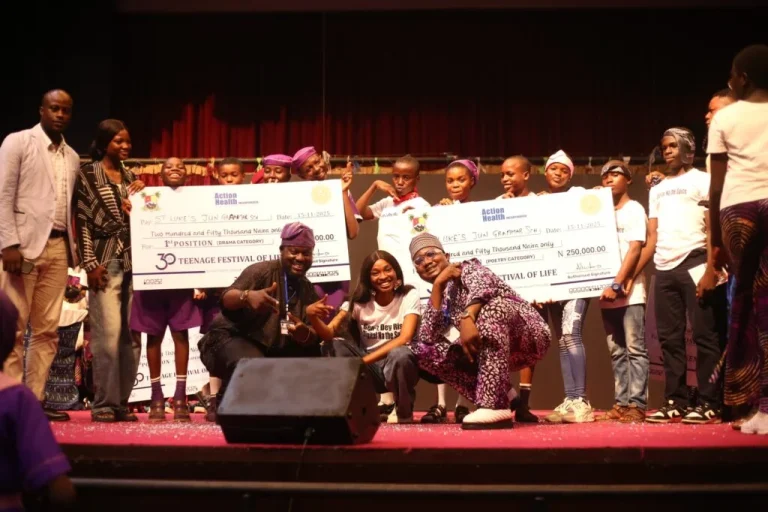Stakeholders in education and youth development have called on Nigerian teenagers to use technology more intentionally to drive innovation, national development and social impact.
They gave the charge on Saturday at the 30th Annual Teenage Festival of Life (TFL), organized by Action Health Incorporated (AHI) at the University of Lagos (UNILAG).
It was reported that this year’s festival, held in partnership with the Lagos State Council for Arts and Culture (LSCAC) and the Lagos State Ministry of Education, brought together students from public secondary schools across the state. The theme for the event was “Young People Leveraging Technology for Social Good.”
Mrs. Adenike Esiet, Executive Director of AHI, noted that adolescents and young people make up more than half of Nigeria’s population and are at the forefront of the country’s rapid adoption of modern technology.
Esiet stressed that young people must recognize the transformative potential of digital tools, which can help address challenges such as hunger, poverty and limited access to healthcare.
“The festival is not just for skill-building; it is for awakening consciousness,” she said.
“Technology goes beyond TikTok. It supports online learning, enables access to digital health information and facilitates innovative solutions across sectors. Technology is an enabler.”
Ms. Funso Bukoye, Programme Manager at AHI, said the festival promotes the intentional use of technology for social good, empowering a digitally savvy generation capable of driving sustainable development.
“To sustain this impact and achieve Nigeria’s ambitious digital literacy target of 95 per cent by 2030, AHI calls for continued support from government, educators and stakeholders,” she said.
“This is needed to expand digital literacy programmes, bridge the digital divide and engage young people in developing solutions nationwide.”
Dr. Christiana Dasaolu, Assistant Director, Basic Education Services at the Lagos State Ministry of Education, urged youths to stay curious and adopt a balanced approach to maximizing the benefits of technology. She commended Lagos State for improving digital access in schools, saying Nigeria could achieve full computer-based testing by 2030 if progress continues.
“When youths are curious, they look for problems to solve. The government has been trying, especially in Lagos where computers are now being introduced even in primary schools,” she said.
Mrs. Yinka Oladipo, Lagos State Director, Agency for Mass Education, highlighted the role of technology in improving students’ academic performance but cautioned that young people need proper guidance to avoid harmful online content.
“Parents should monitor and guide what their children access online. Technology is valuable, but without supervision, it can expose young people to harmful content,” she warned.
Learning strategist Mr. Adewunmi Adeyemo encouraged teenagers to use technology creatively, noting that even simple tools can make significant community impact.
“With just a mobile phone, a young person can build a blog documenting how organizations use technology to solve problems,” he said. “Technology has both positive and negative sides, so it must be used in ways that benefit society.”
A student participant, Etoa Anthony, said technology has made learning easier through improved access to digital resources, despite concerns from some parents about prolonged screen time.
The festival featured drama, music and poetry performances from schools including St. Luke’s Grammar School, Bariga; St. Francis Junior Grammar School, Iwaya; St. Luke’s Junior Grammar School, Bariga; and Oke-Odo Senior High School, Alimosho, among others.
St. Luke’s Junior Grammar School, Bariga, won first place in the Drama and Poetry Category, using the event’s theme to illustrate how technology can address challenges faced by adolescents.


